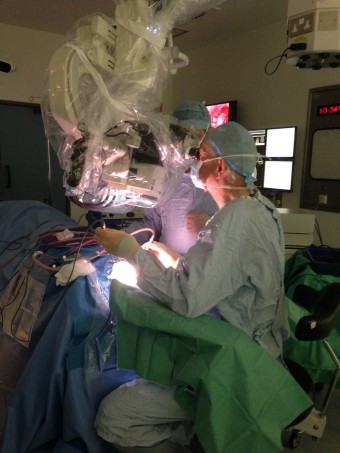The scene is an early supper at the Arden Hotel, Stratford-upon-Avon. The time is just between the penultimate all-day Saturday performances of Wolf Hall and Bring Up the Bodies, the RSC’s adaptations of Hilary Mantel’s Man Booker-winning novels; the shows will close here in a week’s time before reopening at the Aldwych, in London, in May. The cast round the table is composed of Hilary, her husband Gerald McEwen, her younger brother Brian, Mike Poulton – who crafted these plays in close collaboration with Mantel – and me. We are discussing how familiar most of the audience are with the books. Mantel remarks on the opening of the first play, which finds Thomas Cromwell and Cardinal Wolsey in conference; at the edge of the stage is a young man playing a lute. A few moments in to the scene Wolsey sends him off with an abrupt, “Enough now, Mark.”
“A woman just near me leaned over and whispered to her companion, ‘That’s Mark Smeaton!’ – she was very excited,” Mantel says. It is Smeaton who will, in Bring Up the Bodies, play a crucial role in the fall of Anne Boleyn. And indeed, on the Saturday I was there, although I didn’t hear a whisper, a distinct frisson of recognition ran through the sold-out Swan. And that is the genius of both Mantel’s novels and now their stage adaptations: yes, you know where this story is going – but you are no less glad to be along for the ride.


